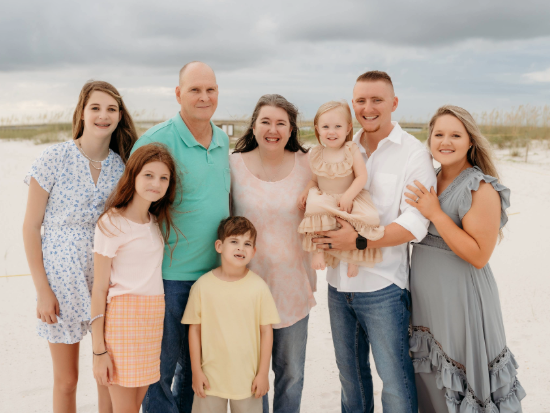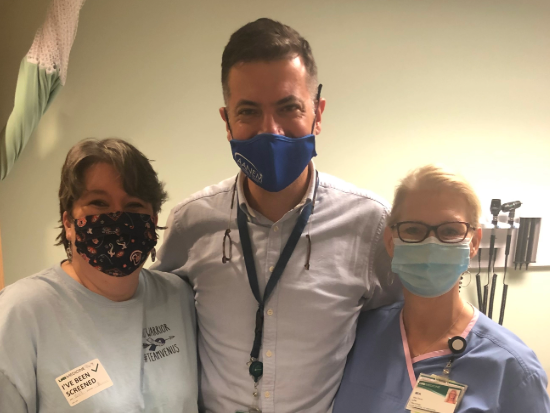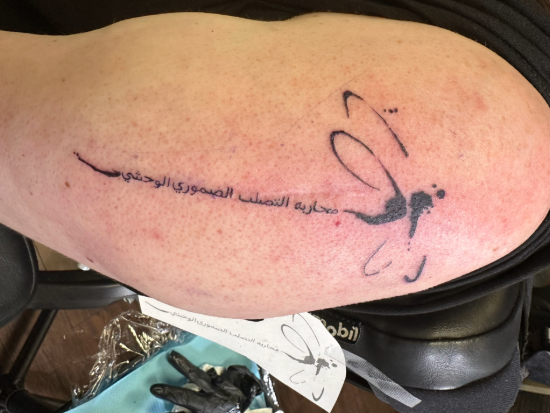 Navigating life with Amyotrophic Lateral Sclerosis (ALS) is a journey filled with challenges, resilience, and hope. Venus Richardson, who has been living with ALS for a decade, has faced profound milestones with unwavering courage.
Navigating life with Amyotrophic Lateral Sclerosis (ALS) is a journey filled with challenges, resilience, and hope. Venus Richardson, who has been living with ALS for a decade, has faced profound milestones with unwavering courage.
Her story of strength, with the support of the UAB ALS Clinic, offers a powerful testament to the ability to triumph over adversity.
Richardson reflects on the significant challenges and heartwarming triumphs that have shaped her journey.
Milestones and personal losses
This year holds significant milestones for Richardson as she celebrates her 50th birthday and the fifth anniversary of her ALS diagnosis. Her journey with ALS has been both challenging and transformative.
Before the onset of ALS symptoms, Richardson was managing a full-time job and caring for her mother and stepfather. Tragically, in early 2017, her stepfather committed suicide, followed by the passing of her mother three weeks later. This period of intense personal loss coincided with the emergence of various ALS symptoms.
“My symptoms became more noticeable and frequent,” Richardson explained. “I experienced drop foot, arm weakness, falls, and leg cramps. That marked the beginning of my search for answers.”
As her symptoms became more pronounced, she began seeking medical answers. In late 2017, she and her husband took custody of their three grandchildren, who were then aged 10, 7, and 3.
“From late 2017 to January 2019, I took on the role of a parent again, juggling work and numerous doctor appointments, tests, and procedures,” she said. “On February 12, 2019, I received 'the call,' hearing the words, 'I'm sorry, you have ALS.'"
 Connecting with the UAB ALS Clinic
Connecting with the UAB ALS Clinic
Richardson's local neurologist in Saraland, Alabama, referred her to the UAB Department of Neurology after sending a left deltoid muscle biopsy to UAB in November 2018.
By April 2019, she was connected with the UAB ALS Clinic and began receiving care from clinic co-director Mohamed Kazamel, M.D., associate professor and Mia Davis, LPN, clinical program coordinator, both in the UAB Department of Neurology.
The clinic's shift to quarterly visits has proven beneficial for Richardson, allowing for more frequent updates and adjustments to her treatment plan.
“I believe this provides them (Kazamel/Davis) with a more accurate framework to assess symptoms, progression, and the effectiveness of medications,” she said. “It also fosters bonds that are incredibly helpful on this journey. Nurse Davis, Dr. Kazamel, all the therapists, and the rest of the team are excellent at keeping us informed about any changes or updates needed for my treatment plan."
 A unique tribute
A unique tribute
Earlier this year, Richardson embarked on a unique tribute.
“I asked Dr. Kazamel how to spell ‘ALS Warrior’ in his native language, intending to use it for a special tattoo,” she said. “He had no clue I was using it as part of a bucket list tattoo.”
After getting the tattoo, Richardson shared a photo with him and displayed the artwork at her next appointment.
“The tattoo is positioned over the scar from the deltoid biopsy,” she explained. “Both Kazamel and Davis have played significant roles in my ALS journey. It was important to me to include him in this meaningful tribute."
Understanding and support
Being connected to the UAB ALS Clinic has been instrumental in helping Richardson navigate the complexities of ALS. Her journey stands as a testament to resilience, hope, and the critical role of compassionate care in navigating such a challenging condition.
"Connecting with the UAB ALS Clinic has significantly improved my understanding of ALS,” she said. “Knowing that I am understood, supported, and just a call, text, or email away from someone who cares has been invaluable."